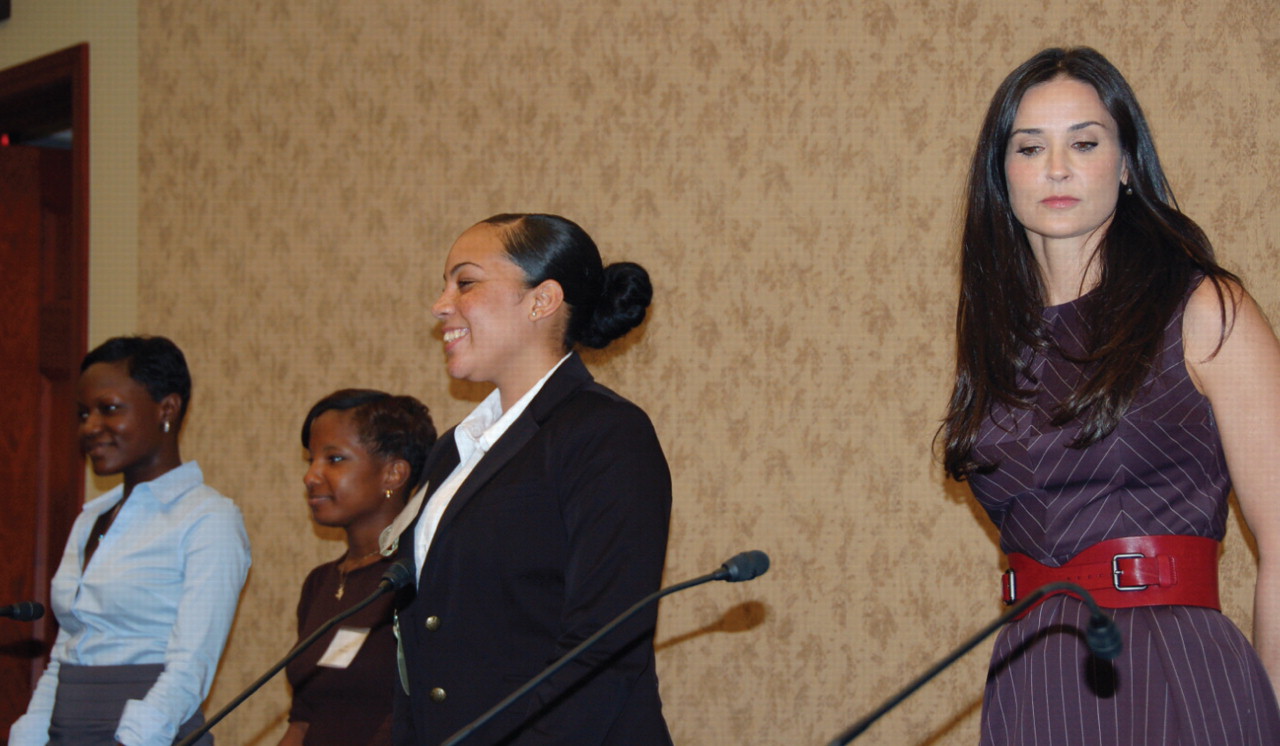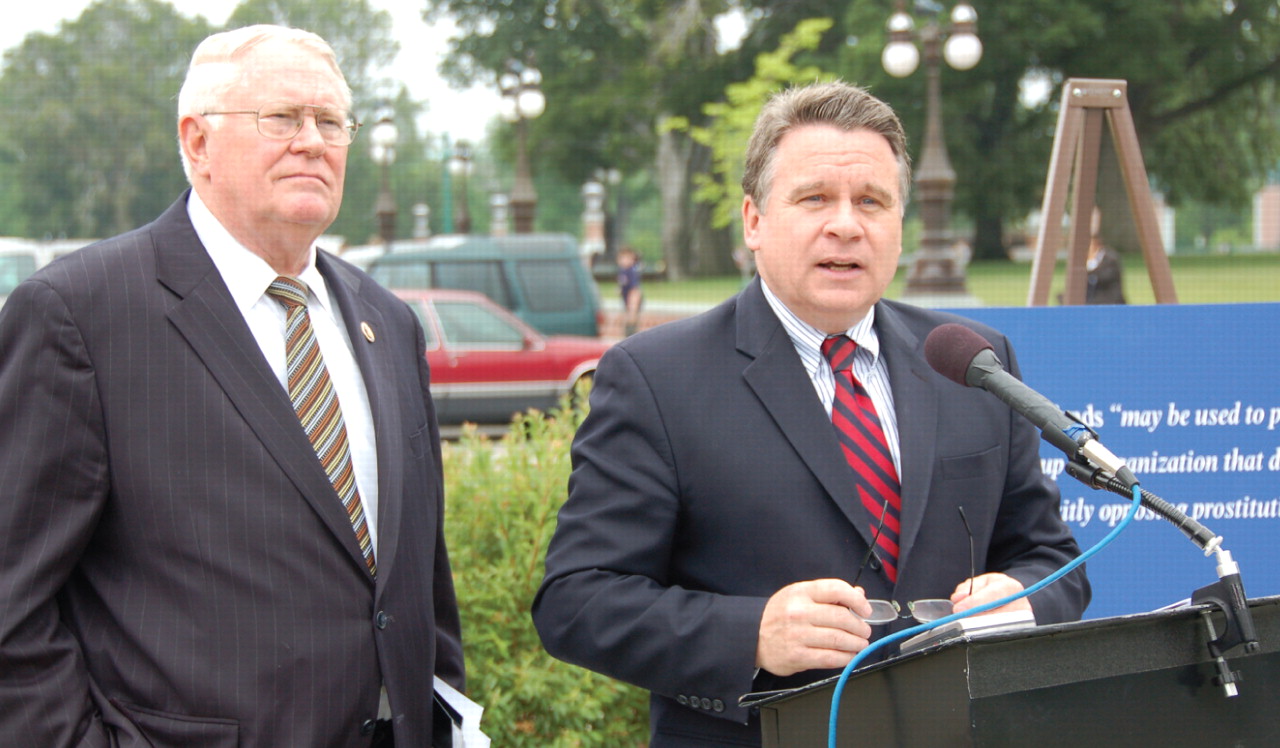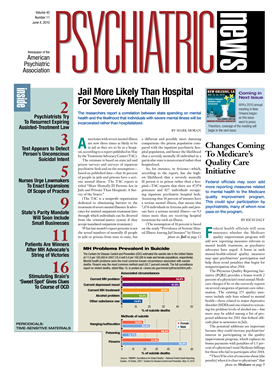Sex trafficking and prostitution have much more in common than just pervasive mental illness among the women and girls who are involved in the two activities. Now advocates of controlling the two practices view them as intricately linked and urge using a new approach to addressing them.
“Demand for prostitution fuels sex trafficking,” actress Demi Moore said in May at the U.S. Capitol at a forum on sex trafficking. “We need to focus on how we can make the johns more accountable.”
Moore—who launched a foundation with her husband, Ashton Kutcher, in January to fight sex trafficking—is one of a growing number of advocates who see a strong link between adult prostitution and the domestic and international trafficking of unwilling women and girls for sex.
She and other opponents of both trafficking and prostitution are urging federal, state, and local governments to focus on both the prosecution of sex buyers and preventive education directed at men and boys.
The concerns about both trafficking and prostitution stem in part from research that consistently finds high rates of posttraumatic stress disorder (PTSD) and other mental illnesses among commercial sex workers. For example, a 1998 study by researchers at Kaiser-Permanente Medical Center in San Francisco interviewed almost 500 prostitutes from around the world and discovered that two-thirds suffered from PTSD. Similar high rates of serious mental illness affect many women and girls who are victims of sex trafficking, said psychiatrist Donna Stewart, M.D., chair of women's health at the University of Toronto, who has studied the mental health impact of sex trafficking on its victims.
The few trafficking victims who make their way to the offices of psychiatrists and mental health professionals are “often terrified” of their pimps and captors, Stewart told Psychiatric News.
High rates of drug abuse also are common among both trafficking victims and prostitutes. For instance, a 1998 survey-based study of 475 prostitutes in five countries published in Feminism & Psychology found that 45 percent were regular users of illegal drugs. Researchers have found that many women and girls are lured into and kept in the sex trade through drug addiction.
A growing number of researchers have become convinced of a connection between adult prostitution and sex trafficking, beyond their similar mental health sequelae—a position that is disputed by legalization advocates. A 2003 study by London Metropolitan University researchers of different governments' approaches to discouraging prostitution found evidence of such a connection.
“[I]nternational trafficking in women and children cannot flourish without the local prostitution markets. If a local prostitution market decreases substantially, organized crime networks are likely to relocate to a more profitable location,” concluded the authors on the basis of data from law-enforcement and social-welfare agencies.
The link has led many advocates to urge a common approach to both problems—one that replaces prosecution of the woman with prosecution of the buyers and organizers. Additionally, educational outreach can teach men and boys who have never bought the services of prostitutes or engaged in sex trafficking about the damage these practices inflicts on those involved. This approach is popularly known as the Swedish model, because that country was among the first to implement it nationwide.
In 1999, Sweden decriminalized the sale of sex but made it a crime to buy sex, while launching a nationwide education campaign about the damage women suffer when they are caught up in the commercial sex trade. The resulting arrests of sex buyers led to a decline in both demand and sex trafficking in Sweden.
Similar but more limited efforts have begun in the United States, where several states have toughened laws against so-called johns, pimps, and traffickers. These efforts are intended to reverse the longstanding practices of arresting prostitutes and rarely prosecuting male customers.
Rep. Chris Smith (R-N.J.) is the author of a 2000 law that deemed all girls caught in federal prostitution arrests as trafficked victims. However, Smith told Psychiatric News that he has been disappointed in the years since with the low priority that federal prosecutors have given to pursuing cases against men buying and pimping such girls.
Meanwhile, educational efforts include End Demand Illinois (EDI), a Chicago-based coalition of nonprofits, which began a statewide education initiative to change attitudes of potential buyers toward commercial sex. The efforts of EDI include a high-school program that organizers hope will become a national model, which teaches boys about the damage women in commercial sex suffer and encourages them to spread the message to friends and relatives. The approach is based in part on research by EDI that found the average age of men when they first buy sex is between 18 and 25.
The ability of men to abandon the notion of paying for sex, according to sex-trade opponents, is the most effective way to reduce the demand that drives sex trafficking and prostitution.
This approach differs sharply from those of countries and localities that have legalized prostitution to regulate and tax it. The highest-profile such approach is in the Netherlands. Prostitution has flourished there since its legalization in 1988, and police now estimate that four illegal brothels exist for each one of the 142 licensed brothels. Additionally, British police say the Netherlands has become a leading pedophile destination in Europe, with police suspecting that child-prostitute abusers choose the Netherlands because of its prostitution-tolerant environment. The Netherlands has seen the rise of an open pedophile lobby since prostitution legalization that advocates for the “right of children to sexual self-determination.” The nation now limits prosecution of sexual abuse of children older than 12 years to cases where a parent or child reports the crime, according to a report by the Child Rights Information Network.
Like many trafficking opponents, Stewart favors the Swedish approach and applauded attempts to redirect the prosecutorial focus away from the victims of the sex trade, citing the potential benefits for the women and girls caught up in it, but doubted that a nationwide realignment in local, state, and federal governments' approaches to the commercial sex trade was really possible in the United States.
In the meantime, she urged psychiatrists to watch for signs of trafficked women and girls among the trauma patients they see in hospital emergency rooms.


